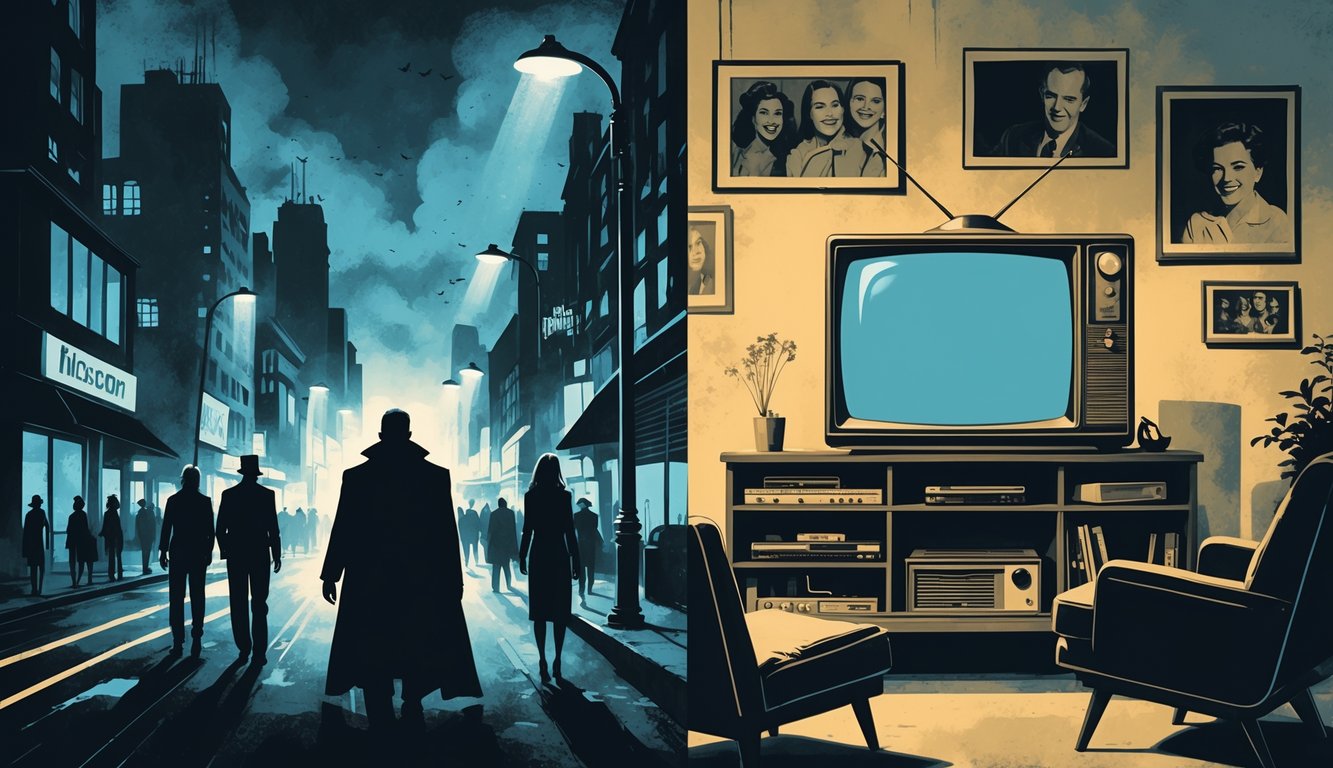
Changes in Viewing Habits: Binge-Watching and Episodic Structure
Suddenly everyone’s sprinting through shadowy limited series, but can’t remember if they ever finished Friends season six. Attention spans? Gone. Platform design? Basically engineered to keep us glued, like we’re all in a lab experiment with Skittles as a reward.
How Binge-Watching Favors Thrillers
People love to binge. Punchlines and weekly waits are out. Netflix claims a third of users binge whole seasons in a week. Cliffhangers? I’m powerless. Try pausing after a big reveal—feels wrong, right? Thrillers are built for this—they drag you along, never give you closure until the bitter end.
I’ll watch four episodes of a psychological thriller in a row, and suddenly it’s 3am. Neil Cross (Luther’s creator) once admitted writers now build shows for marathons, not for ad breaks. That’s comforting, I guess, except I keep losing track of time and reality. Data says 72% of binge-watchers crave suspense, not laughs. Maybe my snacks are just a bonus.
The Episodic Formula of Sitcoms
Remember when sitcoms were just 22 minutes of self-contained fluff? No order, no stakes, just background noise. Now? Streaming killed that vibe. My friends complain about “200 random episodes” and yeah, who wants to start from scratch every night? Seinfeld out of order is fine, but it’s not urgent. It’s just… there.
Old sitcom formulas don’t mesh with binge culture. Nothing really changes, so why bother watching in sequence? Even creative execs admit they’re pushing serialized arcs for new comedies, hoping to catch the binge crowd. Comfort food, sure, but it’s not sticky anymore.
Viewer Commitment to Long-Form Stories
Commitment is supposed to scare us, but people willingly dive into 15-hour stories. I lost half a vacation to one—regrets? Only about the snacks. Long-form, serialized stories are the new normal. Binge-watching motives now lean on character arcs, emotional payoffs, slow-burn drama—stuff sitcoms just don’t do.
Platforms want me glued to serials—auto-play, “next episode,” push notifications. Sitcoms don’t care if I wander off for six months. Thrillers, though? I have to remember every twist, every motive. It’s work, but somehow not. Suspense hooks me in a way “laugh now” never has. I surprise myself with how long I’ll stick with a thriller, but here I am, halfway through another one I never meant to start.
The Role of Nostalgia in Audience Choices
Everyone’s suddenly obsessed with how comforting Friends is on a random Tuesday, even while every streaming chart screams about the next thriller. “Reboot” gets thrown around like it’s going to fix everything, but have you tried watching Seinfeld with Gen Z? Half the jokes just land flat. Paisley shirts, anyone?
Classic Sitcoms and Generational Sentiment
Traditional sitcoms—Friends, The Big Bang Theory, Seinfeld—are losing steam. Comfort food isn’t enough anymore. Industry folks keep telling me “Nielsen says 18-34s only use sitcoms as background noise.” I believe it. My nephew can’t name anyone from Full House but quotes Squid Game memes all day. Studios keep dumping reruns onto streaming, hoping for a miracle, but teens just use old sitcoms for meme fodder.
Older viewers still cling to Chandler’s sarcasm and Sheldon’s quirks, stretching those laugh tracks into some kind of emotional security blanket. Sociologists say nostalgia is emotional self-care, but honestly, hitting play on Seinfeld isn’t fixing anyone’s FOMO. The humor’s sharp, the absence of TikTok is obvious, and the inside jokes just don’t land like they used to. My brother claims classic sitcoms make him “feel safe” during rough news cycles, but ask him about a modern series and he’s got nothing.
Nostalgic Revivals and Reboots
Okay, so, why is Hollywood so obsessed with digging up old stuff and slapping a new coat of paint on it? I mean, that Power Rangers movie—did anyone even ask for that? My cousin called the new Lion King “just animal faces and Beyoncé,” which, I dunno, sounds about right. Studios act like nostalgia is a bottomless ATM. One exec once told me reboots mean “pre-sold audiences,” but let’s be real, Top Gun: Maverick only made bank because my dad insisted we all go so he could compare it to 1986. Is that innovation? Nope. It’s just marketing, and maybe a little bit of midlife crisis. Hollywood keeps betting nostalgia pays off, but not every reboot even survives a season—some just become trivia questions.
Yeah, there’s money in making the old look new. But don’t buy the “we’re honoring the classics” speech; it’s about selling lunchboxes and getting that theme song stuck in your head before they even finish the script. I’ve seen charts: remakes rake in cash, but original sitcoms? They just keep sliding. Nostalgia sells itself—studios literally greenlight stuff based on which titles spike on their social dashboards. Still, half the crowd just shrugs because the new versions feel fake. My aunt, who calls herself a “purist,” hoards box sets and claims Netflix reunions are pointless—she’s not wrong. You can’t fake the old communal vibe, no matter how many times they try to reboot Friends.



